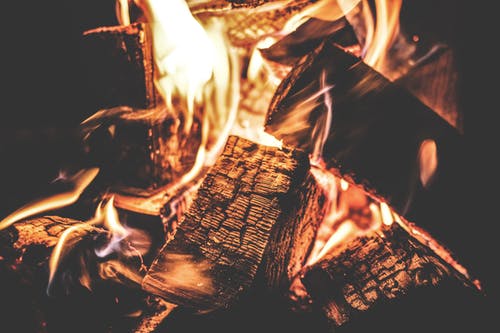It’s always convenient to use an extension cord if there is no outlet nearby, but it’s important to use them safely to avoid a fire hazard. In the US, the misuse of extension cords is one of the common causes of residential fires every year.
Dos and Don’ts When Using Extension Cords
1. Unplug your extension cord when not in use.
This is the simplest way to prevent a fire. If you’re not using an extension cord, unplug it from the wall.
2. Never overload your extension cord.
This is a common mistake people make. Just because an extension cord has more outlets doesn’t mean you should use them all. Only plug in the number of appliances that the cord can handle.
3. Make sure your extension cord is in good condition.
Never use an extension cord if it’s cracked or damaged.
4. Keep your extension cords away from heaters and other sources of heat.
You should never use extension cords near heaters, stoves, or other sources of heat. The heat can cause the insulation on the cord to melt, which could lead to a fire.
5. If possible, use surge protectors.
Surge protectors can help protect your appliances from power surges, which can also cause fires.
6. Check the outlet before plugging in your appliance.
If the outlet feels hot, never use it. Find another outlet to plug your appliance into.
7. Never run an extension cord under a rug.
Rugs can trap heat and start a fire.
What to Do If a Fire Occurs
Get Out and Call 911
If you see a fire in your home, get out and call 911. Don’t try to put the fire out yourself.
On the other hand, keep emergency contact numbers near the phone. These include your local fire department, police station, poison control center, Red Cross, restoration companies, etc.
Extinguish Appliances
If a small fire started in one of your appliances, you could put it out yourself like a toaster. Unplug the appliance and use a Class C extinguisher to extinguish the flames. If you don’t have a Class C extinguisher, use baking soda or salt to put out the fire.
Avoid Water
There are three classes of fire, including Class A, B, and C. A fire caused by an electrical cord is a Class C fire. Use a CO2 fire extinguisher to put out a Class C fire instead of the water extinguisher. Water can make the fire worse.
If You Can’t Get Out, Stay Low, and Cover Your Face
If you can’t get out of your house, stay low and cover your face. Smoke inhalation is one of the leading causes of death in fires.
Remember to use the proper exit plan when exiting a structure: never use an elevator during a fire.
Never Go Back into a Burning Building
Once you get out, never go back into a burning building to get your belongings because it’s not worth the risk. Keep in mind that your life is more valuable than material things.
Document the Damage
After a fire, it’s important to document the damage. Take pictures and keep a list of all the damaged items in the fire. This will help with insurance claims.
Call a Fire Restoration Company
If a fire damages your home, call professionals for residential cleaning services. They can help you clean up the mess and restore whatever is left to get your home back to normal.
Call Your Insurance Company
Keep in mind to call your insurance company as soon as possible. They will help you through the process of filing a claim and getting your home back to normal.
Final Thoughts
Extension cords can be a lifesaver, but they can also be dangerous if not used correctly. So, be sure you unplug them when they are not in use and follow these tips to avoid a fire. If a fire occurs, know what to do. While it’s best not to use these information, it’s always good to prepare.
On top of these, make sure to keep emergency contact numbers handy, including your local fire department, police, other relevant agencies, and restoration companies, such as PuroClean. See here for more information about fire restoration services and their other services.




